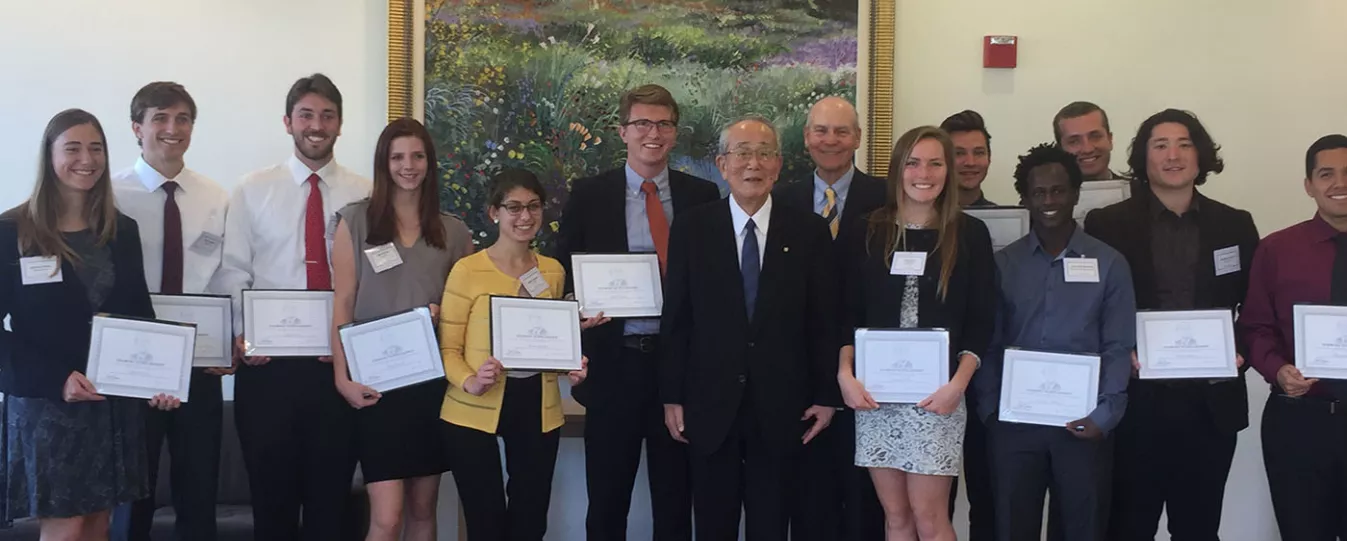The 16th annual Kyoto Prize Symposium took place on 14-15-16 March in San Diego, California. The three-day celebration of the lives and works of the Kyoto Prize Laureates is coordinated by the not-for-profit Kyoto Prize Symposium Organization.
The events are spread across the four universities in the San Diego area: Point Loma Nazarene University (PLNU), University of California, San Diego (UCSD), San Diego State University (SDSU) and San Diego University (SDU).
The Opening Ceremonies and Gala were themed around ‘Celebrating Outstanding Lifetime Achievement’ and focused on the importance of overcoming obstacles to achieve great things – including pieces from musicians that had overcome difficulties in their careers, as well as speeches from each of the laureates and this year’s scholarship recipients.
An integral part of the Symposium, the Kyoto Prize Scholarships provide financial assistance to graduating high school seniors from the San Diego and Tijuana areas. Dr Inamori awarded the Fellowship certificates to ten students for both academic excellence and positive contributions to the University community.
The following days were occupied by the three Kyoto Prize Laureates' lectures:
- Dr Tasuku Honjo gave his lecture, entitled Serendipities of Acquired Immunity, at UCSD to an audience largely composed of high school age children. Offering fascinating reflections on the history of acquired immunity and what inspired him to pursue a career in immunobiology, Dr Honjo explained the ground-breaking cancer immunotherapy treatment he was instrumental in developing, and the impressive success rate of the treatment.
- Dr Takeo Kanade introduced the key qualities of science at SDSU with his lecture entitled Fun Research in Computer Vision and Robotics, stating that research should respond to real problems, be detailed and make a difference. He also emphasised that successful ideas are often surprisingly simple, leaving the audience with the thought that ‘problems are waiting for you to solve.’
- Dr Martha Nussbaum delivered her lecture, entitled Philosophy in the Service of Humanity, at San Diego University. Dr Nussbaum argued that philosophy still plays an important role in public policy, and should be re-introduced as a key priority into the profession. She discussed the gaps in existing philosophical doctrines that led to her creating the ‘capabilities approach’, for which she has been awarded the Kyoto Prize. Alongside calling for policymakers to pay closer attention to philosophy, she also had some lessons for philosophers themselves: operating with rigour and transparency; respecting other subject disciplines, religious beliefs, and philosophical traditions across the world; demonstrating concern for previously excluded voices (for example, women), and focusing on real human life in all its messiness and complexity.
The Kyoto Prize Symposium is the second event in the Laureates’ year, after the Kyoto Prize Presentation Ceremony last November. Their stories and achievements will inspire audiences in the UK and Europe in early May for the inaugural Kyoto Prize at Oxford events.
